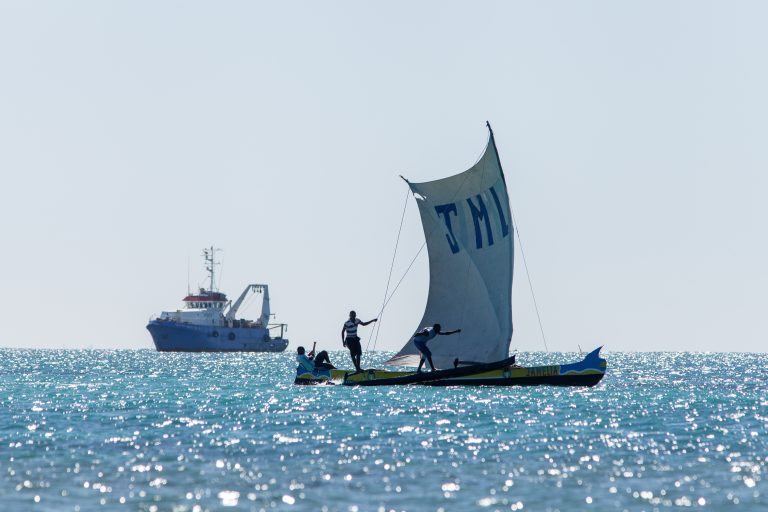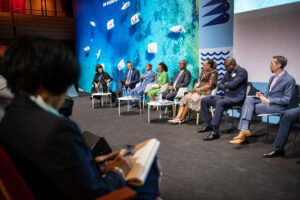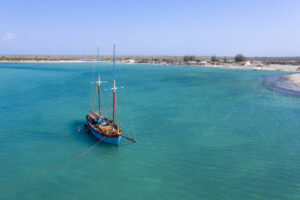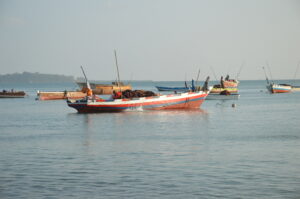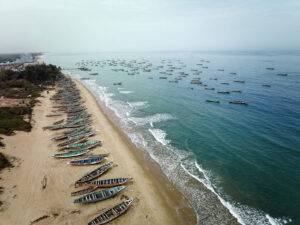Over 99 percent of bottom trawling worldwide occurs inside the Exclusive Economic Zones of coastal nations posing risks to critical habitats and small-scale, artisanal fishers, a new report shows.
The report, written by experts from Blue Ventures, CEA Consulting, Duke University, Fauna and Flora International and Seas Around Us identified China, Vietnam, Indonesia, India and Morocco as the top five bottom trawling countries as measured by their average catch (2007-2016), with the UK ranking in the top 20 alongside the USA and New Zealand.
Foreign-flagged vessels account for a staggering 90 percent of all fish landed by bottom trawlers in 34 coastal nations, with most vessels of Asian or European origin, and most bottom trawling focused within just 12 miles of shore. These trawlers frequently operate in the waters of Africa and Oceania, but due to ineffective fisheries management and enforcement regimes in some areas, the scale of impact is likely greater than available figures suggest.
The findings of this work advance our understanding of the impacts of bottom trawling on critical coastal habitats and small-scale fisheries. “Over 100 million people rely on subsistence and small-scale fishing for their daily food and livelihood − often using the same waters targeted by bottom trawlers. By impacting complex habitats and fish populations, bottom trawling can create conflict and diminish fisheries that are critical to the livelihoods and food security of some of the most vulnerable people on earth” said Dr Steve Rocliffe, a marine scientist at Blue Ventures.
The report also highlights the contribution of bottom trawling to greenhouse gas emissions through high fuel use and disturbance of carbon-containing sediments. The carbon footprint of bottom trawled seafood from fuel use alone is among the highest of all foods and almost three times higher than other non-trawl fisheries.
The need to address these impacts has never been greater. The report’s release comes shortly after the launch of the United Nations General Assembly International Year of Artisanal Fisheries and Aquaculture (IYAFA 2022), which serves to recognise small-scale artisanal fishers, fish farmers, and fish workers and their contribution to sustainable development, food security, livelihoods, nutrition, and poverty eradication.
As custodians of shared resources, small-scale fishers have a fundamental role in ensuring the responsible management and sustainable use of marine fisheries and ecosystems, especially given the threat posed to small-scale fishing livelihoods by bottom trawling. Establishing, expanding and strengthening national inshore exclusion zones (IEZs) for small-scale fishers in which bottom trawling is prohibited will be fundamental to the livelihoods of millions of people who rely on this not-so small-scale sector.
Blue Ventures hosts the Transform Bottom Trawling Coalition to develop equitable, evidence-based policy solutions to mitigate the impacts of bottom trawling. This includes developing technical research briefings and bringing perspectives together to identify paths towards lower-impact fishing methods.
The coalition calls on decision-makers to adopt and implement the recommendations made in the report, which include nine high-level actions to transform bottom trawling to rebuild coastal fisheries and safeguard the marine environment. These actions will be vital in ensuring that bottom trawling is tackled urgently by all coastal nations, following the leadership of countries like Belize, which legislated a ban on bottom trawling in the country’s waters in 2010, and Madagascar, which recently banned bottom trawlers from fishing within two nautical miles of shore.
Read the full report and recommendations here.
Find out more about the impacts of bottom trawling on climate change.
Read the United Nations Food and Agriculture Organisation’s fisheries stories.
Hear from an expert panel discussing bottom trawling and a net-zero future at our COP26 event in Glasgow.

